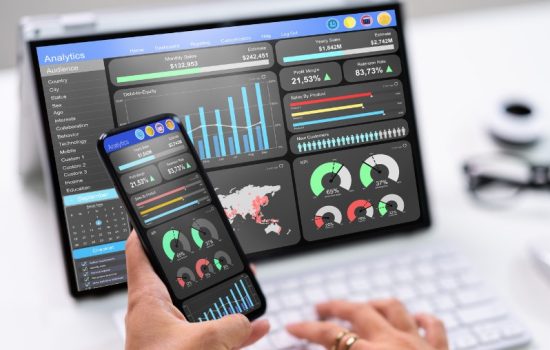Agile Data Science: Leveraging Iterative Approaches for Accelerated Innovation
In the dynamic intersection of technology and business, the imperative for adaptability and agility has never been more pronounced. Startups, confronting the challenge of rapid innovation to maintain competitiveness and meet dynamic market demands, are increasingly turning to Agile Data Science—a methodology amalgamating Agile development principles with the potency of data science. This convergence fosters iterative processes, enabling swift and responsive innovation.
Comprehending Agile Data Science

Agile Data Science represents a fusion of Agile methodologies, originally tailored for software development, and the foundational principles of data science. The central tenet involves dismantling the conventional, linear approach to data projects into more manageable iterations. This approach facilitates swift responses to evolving requirements, real-time integration of feedback, and the expeditious delivery of tangible results.
Fundamentally, Agile Data Science epitomizes values such as flexibility, collaboration, and a customer-centric ethos. The iterative nature of the methodology ensures continuous improvement, mitigating the risk of developing solutions misaligned with evolving market dynamics or end-user expectations.
For organizations seeking to harness the power of Agile Data Science and stay at the forefront of innovation, consider hiring skilled data scientist developers through https://lemon.io/hire-data-scientists-developers/ to seamlessly integrate this dynamic approach into your projects.
Key Principles of Agile Data Science

- Iterative Development: Agile Data Science champions iterative development cycles, emphasizing the completion of smaller, functional components within short intervals, or sprints. This permits regular assessments and adjustments based on immediate feedback.
- Cross-Functional Collaboration: The methodology encourages collaborative efforts among cross-functional teams, comprising data scientists, developers, and business stakeholders. This interdisciplinary approach ensures the development process is cohesive, with each team member contributing specialized expertise.
- Customer Feedback Integration: Agile Data Science places substantial emphasis on customer feedback. By delivering working prototypes or minimum viable products (MVPs) at the conclusion of each iteration, teams can glean early insights, ensuring the end product aligns closely with user expectations.
- Adaptability to Change: Unlike traditional project management paradigms, Agile Data Science embraces change as an inherent facet of the development process. Teams can pivot swiftly in response to emerging insights or shifts in market dynamics.
- Continuous Learning: The iterative nature of the methodology promotes continuous learning and improvement. Each iteration serves as an opportunity for reflection, enabling the team to discern successful strategies and areas for enhancement and optimize processes for subsequent cycles.
Benefits of Agile Data Science for Startups

- Faster Time-to-Market: Agile Data Science empowers startups to expedite their time-to-market, enabling them to introduce innovative solutions swiftly. This strategic advantage is instrumental in gaining a competitive edge and capitalizing on opportunities before larger competitors.
- Reduced Risk: The iterative methodology minimizes the risk of developing a product misaligned with user preferences. Regular feedback loops facilitate early course corrections, enhancing the likelihood of delivering solutions that resonate with end-users.
- Increased Flexibility: Startups, inherently adaptable entities, benefit from Agile Data Science’s flexibility, enabling them to respond promptly to market changes, technological advancements, or shifts in business priorities.
- Enhanced Collaboration: Breaking down traditional silos, Agile Data Science fosters collaboration among diverse team members, improving communication and ensuring alignment with project goals.
- Improved Resource Utilization: By focusing on manageable iterations, Agile Data Science enables startups to optimize resource allocation. This strategic emphasis on efficiency allows teams to prioritize tasks based on real-time feedback and evolving project requirements.
Challenges and Considerations
While Agile Data Science offers substantial advantages, it is not without challenges. Startups considering adoption must address potential hurdles:
- Data Quality and Availability: The success of iterative development relies on a continuous stream of quality data. Ensuring the reliability, consistency, and availability of data sources is imperative.
- Skill Set Integration: Integrating individuals with diverse skill sets into cross-functional teams may pose communication challenges. Addressing potential gaps and fostering a shared understanding of project objectives is essential.
- Balancing Speed and Quality: Striking the right balance between speed and quality is crucial. The emphasis on rapid development should not compromise the overall quality of the solution.
- Managing Stakeholder Expectations: Regular feedback loops necessitate active stakeholder involvement. Managing expectations and ensuring transparent communication are paramount for project success.

Case Studies: Agile Data Science in Action
Several successful startups have harnessed Agile Data Science methodologies, underscoring the real-world impact of this approach.
Airbnb: Airbnb utilized Agile Data Science to refine its search algorithm, facilitating more efficient listing discovery. The iterative approach allowed continuous adjustments based on user behavior and feedback.
Netflix: Netflix leverages Agile Data Science to perpetually enhance its recommendation engine. Real-time analysis of user preferences enables Netflix to adapt recommendations, ensuring a personalized and engaging user experience.
Spotify: Agile Data Science is instrumental in Spotify’s success in delivering personalized playlists and recommendations. Continuous iterations and feedback loops enable Spotify to fine-tune its algorithms in response to evolving music preferences.
Embracing Agile Data Science for Unparalleled Innovation
In the rapidly evolving landscape of startups and technology, the ability to innovate swiftly and efficiently is a paramount competitive advantage. Agile Data Science, with its structured yet flexible framework, empowers startups to leverage the potency of data for rapid and impactful innovation.
By embracing iterative approaches, fostering collaboration, and prioritizing customer feedback, startups can navigate the intricacies of the modern business environment with agility and resilience. In an era characterized by rapid innovation, Agile Data Science stands out as an indispensable methodology for startups aiming not merely to survive but to thrive.






